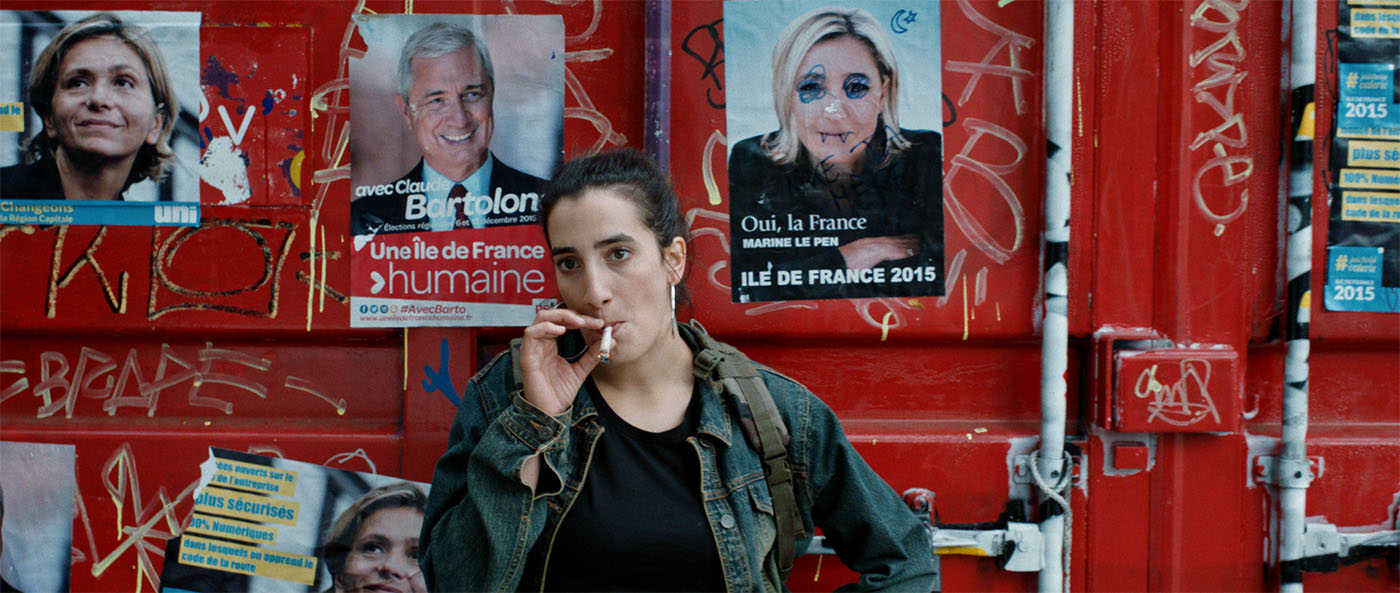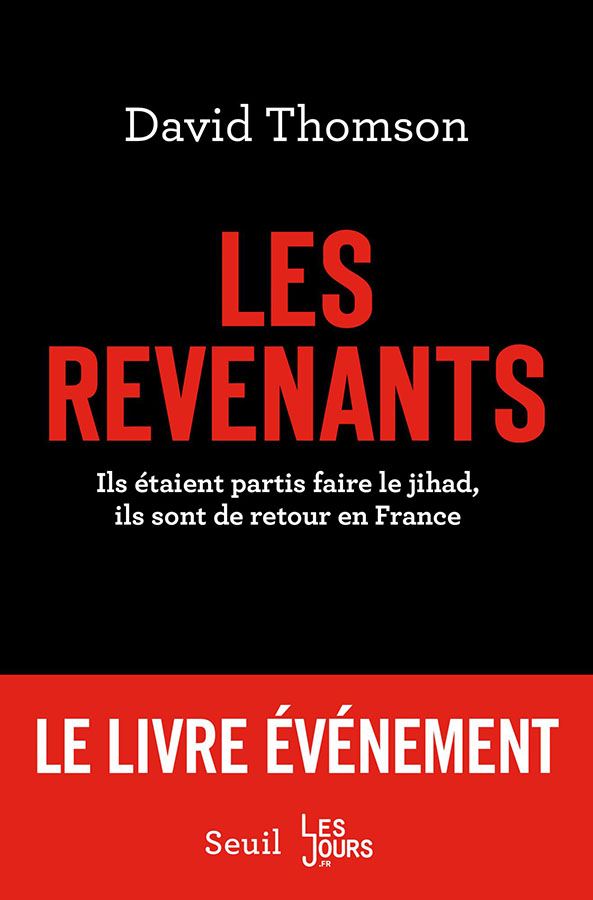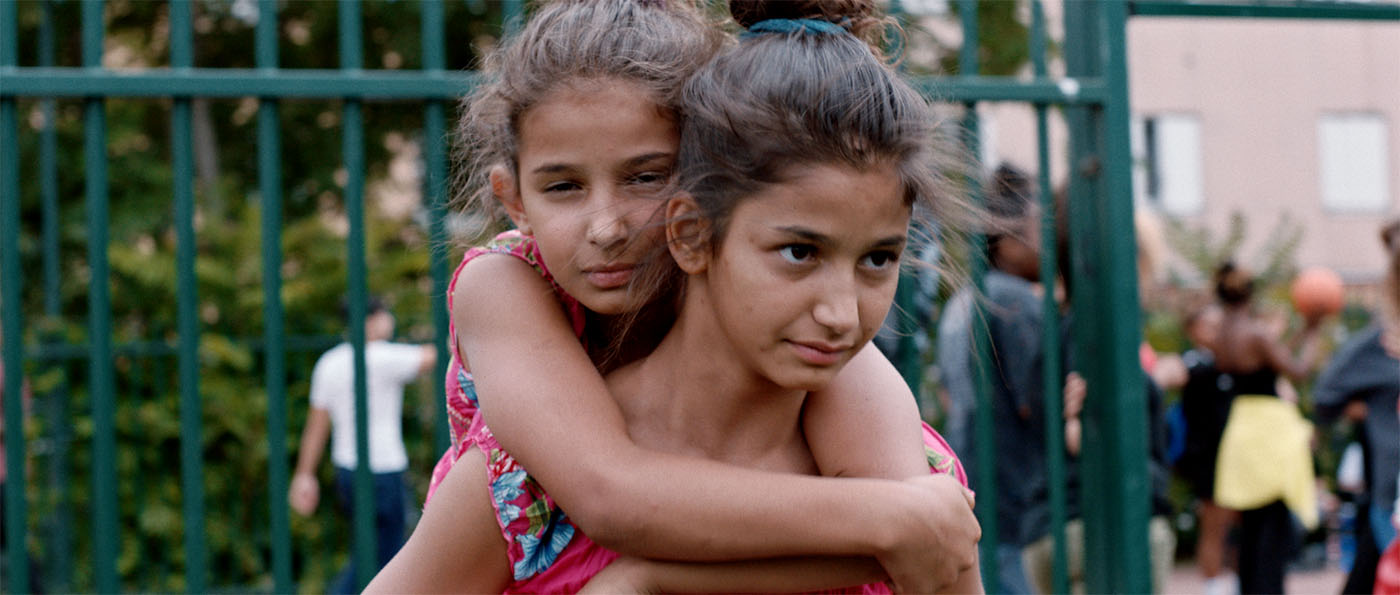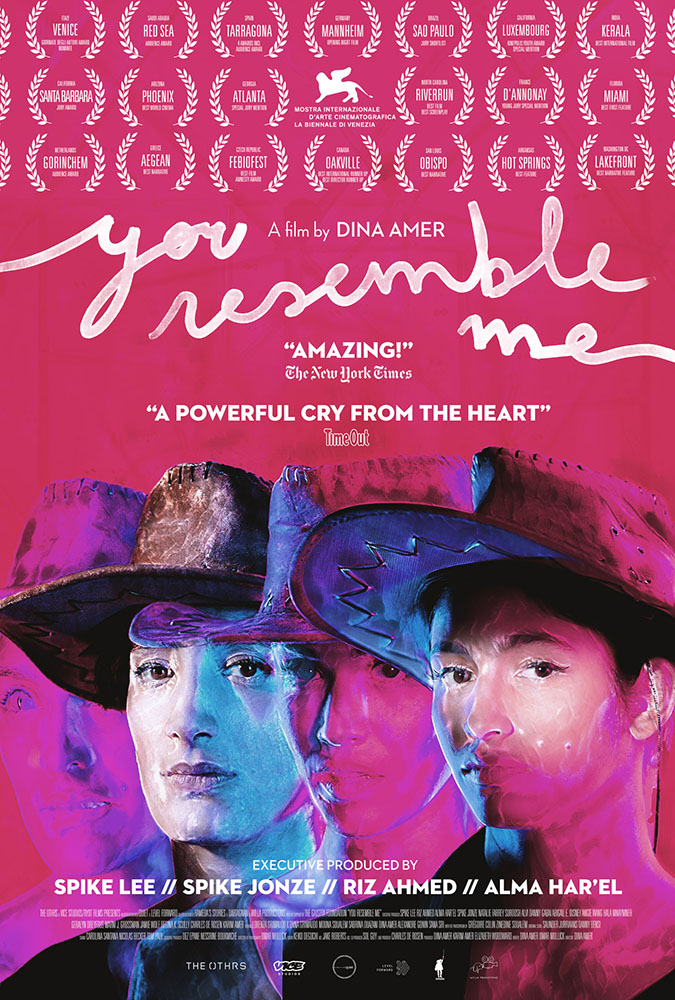
Jordan Elgrably
Why do they do it?
People who kill themselves and others in the process?
There was a time when “suicide bomber” was an oxymoron.
No more. Legions have been willing to blow themselves up for a cause, for decades.
But women? How many have ever crossed that threshold?
In You Resemble Me, Egyptian American screenwriter and feature film director Dina Amer decided to find out what could have brought about the demise of Hasna Ait Boulahcen, who was called Europe’s first female suicide bomber. The film, now screening in US theatres, explores Hasna’s early life and controversial death.

A Venice Film Festival official selection, You Resemble Me has gathered up dozens of film awards and has a 100% Audience Score on Rotten Tomatoes, in part, I submit, because the child actors who star in the film’s early sequences are phenomenal.
Amer calls herself “a recovering journalist.” She was on the job when the November 2015 terrorist attacks took place in Paris, with 130 killed at the Bataclan and other locations around the city.
You Resemble Me begins in the Paris banlieu of Aulnay-sous-Bois, drilling down into the childhood of Hasna and her younger sister Mariam. How did an ordinary girl from a working-class Algerian family become radicalized? How do Arab/Muslim children who are born in France, who go to French schools, wind up terrorizing their fellow French citizens? Was Hasna yet another victim of Wahhabi/Salafist ideology, which perverts Islam to recruit young Muslims for jihad?
In fact, all but two of the November 13, 2015 attackers were French or Belgian-born Muslims; they had all grown up in or around Paris or Brussels and had turned against their own people to become jihadis on European soil — unlike the French-born Muslims whom journalist David Thompson interviewed for his 2016 book, Les Revenants (The Returnees), who left France beginning in 2012 to fight for ISIS in Syria. Thompson chronicles the stories of former jihadis who fought on distant battlefields, young men and women who attempt to come home and resume French life. For them, what drives radicalization is both a sense of duty to other Muslims and a lack of acceptance in white European societies, where they are often seen as brown “foreigners,” despite being native born.
The Norwegian journalist Åsne Seierstad covered this ground elegantly in her 2018 book Two Sisters: Into the Syrian Jihad, which chronicled the lives of teenagers Ayan and Leila Juma, who secretly stole away from their Oslo family to join ISIS, making their way to Turkey before sneaking into Syria.

Working with her screenwriting partner Omar Mullick, Amer did more than 350 hours of interviews with Hasna’s family members, embedding herself in the community for six years. Amer deconstructs Hasna’s life and recreates it like a collage artist with an all-seeing camera, peering closely into the hearts of two sisters who struggle with their mentally unhinged mother as they play and live on the streets, before going into foster care.
We discover that Hasna grows up largely without her mother, and without the benefit of her sister Mariam’s constant company. You watch as she becomes a troubled loner who plays hooky and endures the school of hard knocks. Hasna has a hard time finding, and keeping, a job. Nothing goes quite right for her, it seems. Your heart breaks for a kid who has as much potential as any kid in an average dysfunctional family.

But to go from social rejection and bullying to radicalization? It’s a long bridge to cross, and You Resemble Me takes you on the journey, meting out a few surprises along the way. The viewer understands that the director deeply identifies with her subject. And in order to show that Hasna was a complicated personality, she deftly suggests that she may have been more than one woman, using a technique that calls for three adult actresses to embody Hasna. It’s a cinematic leap of faith that we once experienced in the Luis Buñuel classic, That Obscure Object of Desire (1977), in which two actresses, Carole Bouquet and Ángela Molina, both play the character of Conchita, switching roles in alternate scenes and sometimes in the middle of scenes. Here, Mouna Soualem is the most effective version of Hasna, while Sabrina Ouazani and Dina Amer herself appear as alternates.
Amer explains in the film’s press notes that, “As a Muslim Egyptian woman living in the West, I’ve struggled to reconcile pieces of my identity that feel contradictory. I am a woman who has spent the majority of my life praying discreetly in public spaces (airports are the hardest). And yet I don’t look like what most of society envisions as a Muslim woman. I don’t wear a hijab and I love Cardi B. Throughout my life I’ve lived through the shadow of how the failure to reconcile a Muslim Western identity with such clear contradictions can result in a haunting headline.
“This film is a journey through layers of disassociation, from the personal and familial to the religious and colonial; a kaleidoscope of splintered identities and fractured dreams. You Resemble Me explores the unexamined roots of trauma and the devastating decision that one woman made in the name of belonging. […] The intention of this exploration is that it can help inform us as a society how to safeguard other individuals from falling into the same traps.”
Whether or not You Resemble Me succeeds as a warning, as a corrective, against radicalization, remains unclear. What the film does do is wrap you tight in its emotional web, never letting you go.



